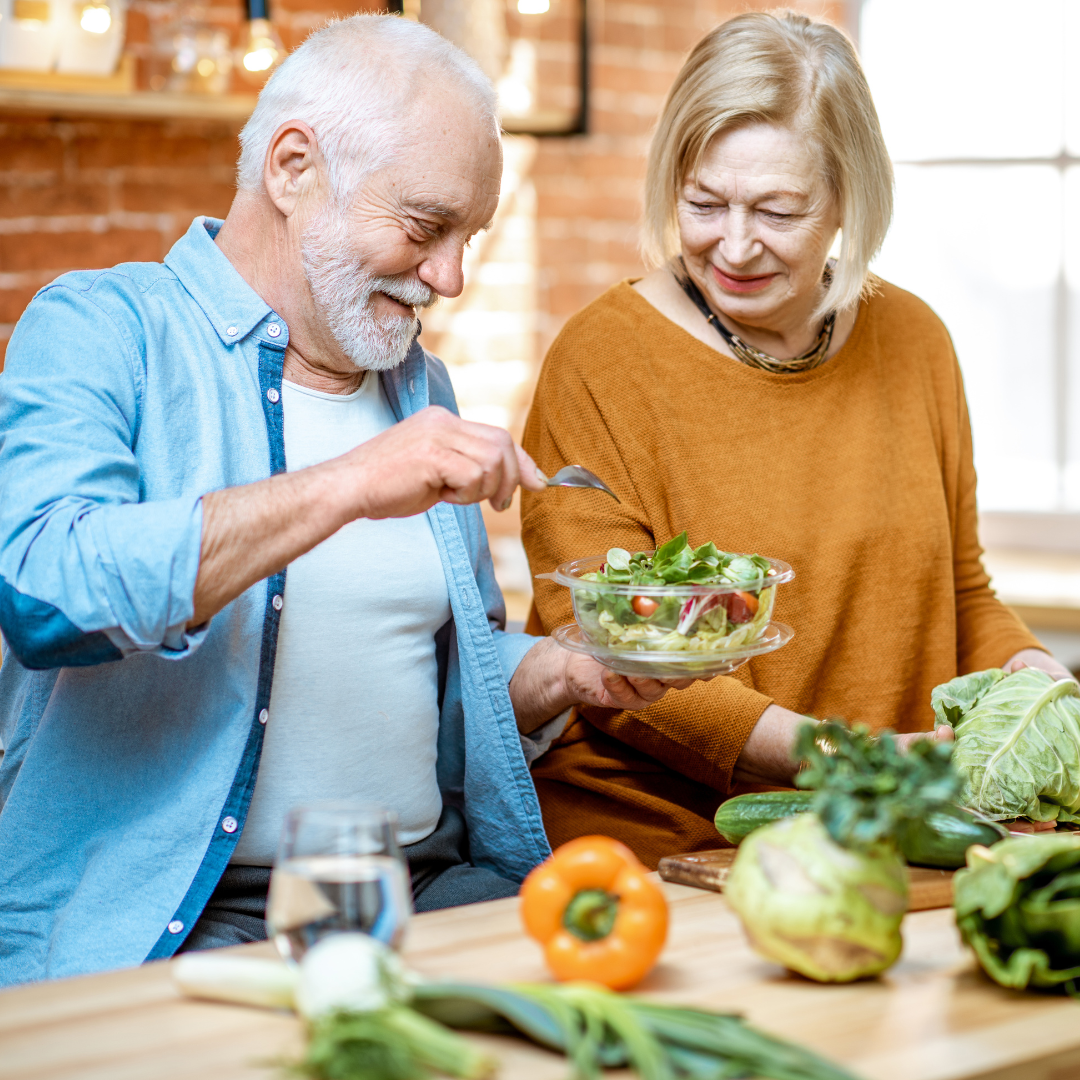
Nourishing Wisdom: A Guide to the Nutritional Needs of Seniors 55 and Up
As we gracefully navigate the golden years, our bodies undergo changes that demand a more mindful approach to nutrition. A well-balanced diet is not just a cornerstone for overall health but becomes a powerful tool for seniors aged 55 and up to promote vitality, resilience, and longevity. In this exploration, we delve into the importance of fiber, vitamin C, zinc, and magnesium in meeting the nutritional needs of our seniors. Vitaminis are designed to help you meet your nutritional needs without the tradeoffs of added sugar, mystery ingredients or tons of mixing, measuring and prep.
The Fiber Connection: Building Digestive Health
One of the key nutritional elements that often takes center stage for seniors is fiber. As the digestive system experiences changes with age, incorporating an ample amount of fiber into the diet becomes increasingly crucial. Fiber aids in preventing constipation, a common issue among seniors, and supports overall digestive health.
Whole grains such as brown rice, quinoa, and oats are excellent sources of dietary fiber. Vegetables and fruits, particularly those with edible skins, contribute not only fiber but also a host of vitamins and minerals. Legumes, nuts, and seeds round out the fiber-rich options for seniors looking to maintain a healthy digestive system. Vitaminis Gut Health helps with overall gut health by providing as much fiber as 1 cup of broccoli (5 grams!) and as much probiotics as 2 cups of yogurt.
Vitamin C: A Powerful Antioxidant Boost
Vitamin C, known for its immune-boosting properties, is particularly vital for seniors who may face a higher susceptibility to infections and illnesses. This antioxidant vitamin plays a pivotal role in the body's defense against free radicals, supporting the immune system and promoting healthy skin.
Citrus fruits like oranges, grapefruits, and lemons are classic sources of vitamin C. Additionally, berries, kiwi, and bell peppers offer a delicious variety to ensure seniors receive an adequate daily intake of this essential nutrient. As vitamin C is water-soluble and not stored in the body, it's important to consistently incorporate these foods into the diet. Vitaminis Immune Support has as much Vitamin C as 3 oranges, with no strong flavors like ginger, turmeric or pepper.
Zinc: Fortifying Immune Function and Beyond
Zinc is a trace mineral that plays a crucial role in immune function, wound healing, and overall cellular growth. As seniors may face challenges related to immune response and slower healing, ensuring an adequate intake of zinc becomes paramount.
Meat, dairy products, and seafood are excellent sources of zinc. For seniors following a vegetarian or vegan diet, legumes, nuts, seeds, and whole grains can contribute to meeting zinc requirements. Incorporating a variety of zinc-rich foods into meals not only supports immune health but also aids in maintaining optimal bodily functions. Vitaminis Immune Support has as much Zinc as 4 avocados, with no added sugar.
Magnesium: Sustaining Bone and Muscle Health
Magnesium, often referred to as the "mighty mineral," is instrumental in supporting bone health, muscle function, and energy production. As bone density tends to decline with age, seniors can benefit greatly from ensuring they get enough magnesium in their diet.
Leafy green vegetables, nuts, seeds, and whole grains are excellent sources of magnesium. Incorporating these foods into meals helps seniors maintain strong bones and supports muscle function, ultimately contributing to improved mobility and overall well-being. Vitaminis Immune Support has as much Magnesium as 5 cups of spinach in one tasty orange pineapple jucie shot.
Practical Tips for Seniors and Caregivers
- Diversify Your Plate:
- Aim for a colorful plate that includes a variety of fruits and vegetables. This ensures a broad spectrum of vitamins and minerals, including vitamin C and magnesium.
- Choose Whole Grains:
- Opt for whole grains such as brown rice, quinoa, and whole wheat bread to boost fiber intake and provide lasting energy.
- Lean Proteins for Zinc:
- Include lean meats, seafood, and plant-based protein sources like legumes to ensure an adequate intake of zinc for immune support.
- Hydration Matters:
- Stay hydrated with water and other fluids to support digestion and overall health. Limit caffeinated and sugary beverages.
- Consult with a Professional:
- Individual nutritional needs can vary. Seniors and their caregivers should consult with healthcare professionals or registered dietitians for personalized advice based on specific health conditions and dietary preferences.
In conclusion, embracing a well-rounded and nutrient-dense diet is a powerful strategy for seniors aged 55 and up to thrive in their golden years. By paying attention to the nutritional trifecta of fiber, vitamin C, zinc, and magnesium, seniors can fortify their bodies against the challenges of aging, fostering a lifestyle marked by resilience, vitality, and lasting well-being. Vitaminis Immune Support provides as much Vitamin C as 3 oranges, as much Zinc as 4 avocados and as much Magnesium as 5 cups of spinach. Vitaminis Gut Health has as much probiotics as 2 cups of yogurt, and as much fiber as 1 cup of broccoli. We are here to make meeting your nutritional needs easy and tasty!
